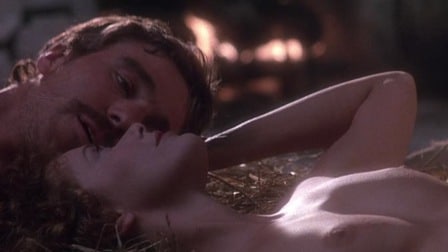On this day in 1960, a landmark obscenity case over Lady Chatterley’s Lover, by D.H. Lawrence, ends in the acquittal of Penguin Books.
The publisher had been sued for obscenity in publishing an unexpurgated version of Lawrence’s novel, which deals with the affair between the wife of a wealthy, paralyzed landowner and his estate’s gamekeeper. The book had been published in a limited English-language edition in Florence in 1928 and Paris the following year.
An expurgated version was published in England in 1932. In 1959, the full text was published in New York, then in London the following year.
Lawrence was born to a poor coal-mining family in Eastwood, Nottinghamshire, in 1885. His mother struggled to teach her children refinement and a love of education. She depended heavily on Lawrence for emotional support and nurturing. He won a scholarship to Nottingham High School, worked as a clerk, and attended University College in Nottingham, where he earned a teaching certificate.
His first novel, The White Peacock, was published in 1911.
The following year, Lawrence fell in love with Frieda Weekley, the German wife of a fellow teacher. The pair fled to Germany and wed after Frieda divorced her husband.
In 1913, Lawrence published his first major novel, Sons and Lovers, an autobiographical novel set in a coal town. The couple returned to England, and Lawrence’s next novel, The Rainbow (1915), was banned for indecency.
After World War I, Lawrence traveled to Italy, Australia, and Mexico and wrote several more novels, including Women in Love (1921).
He died of tuberculosis in France in 1930, at the age of 44.


